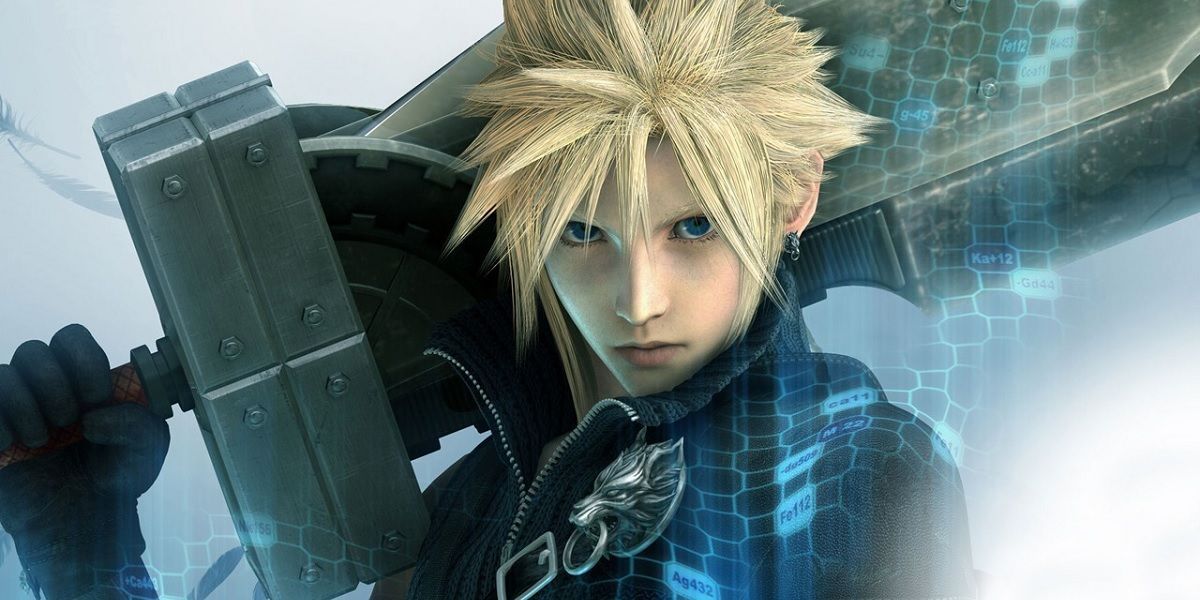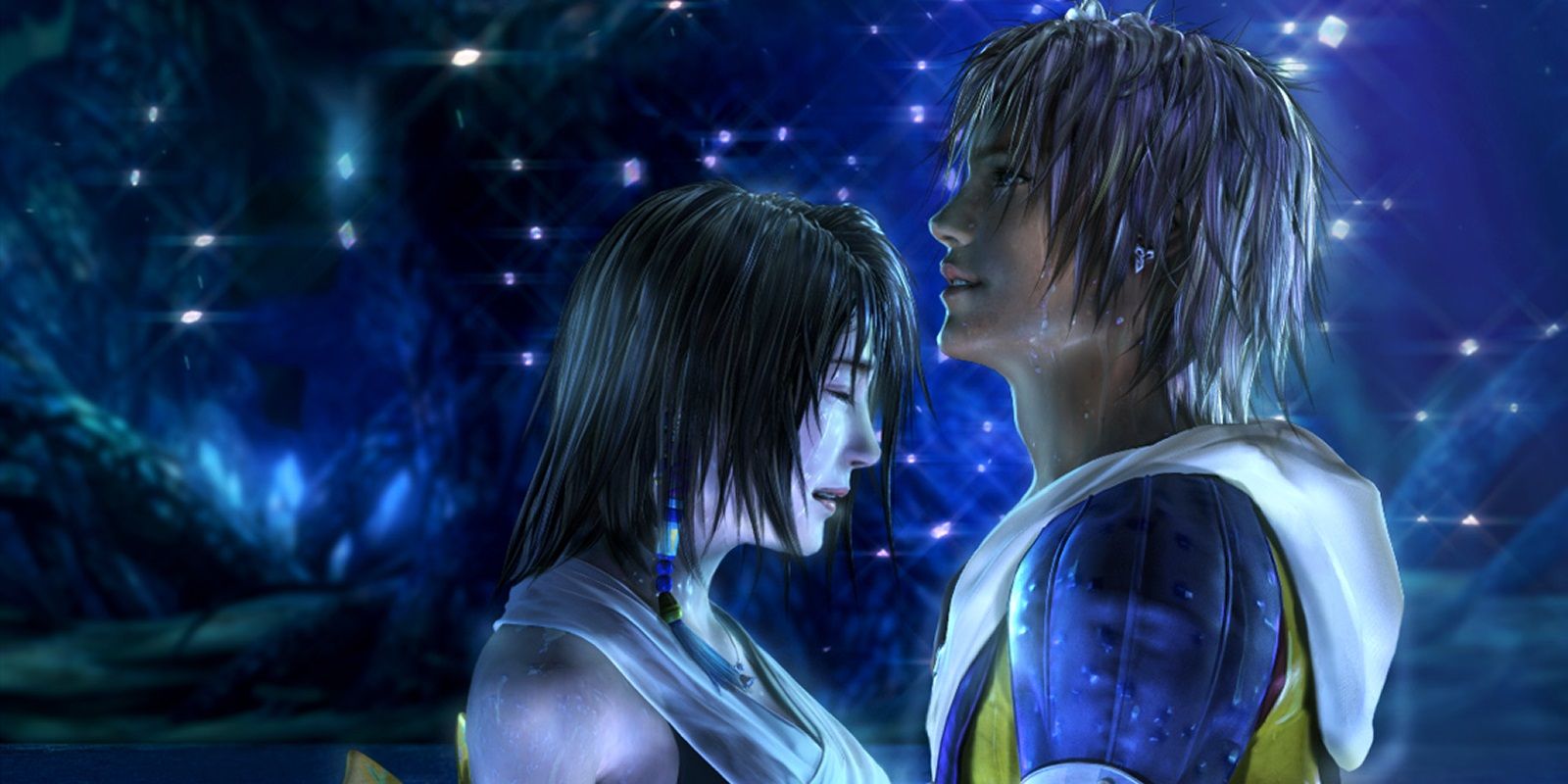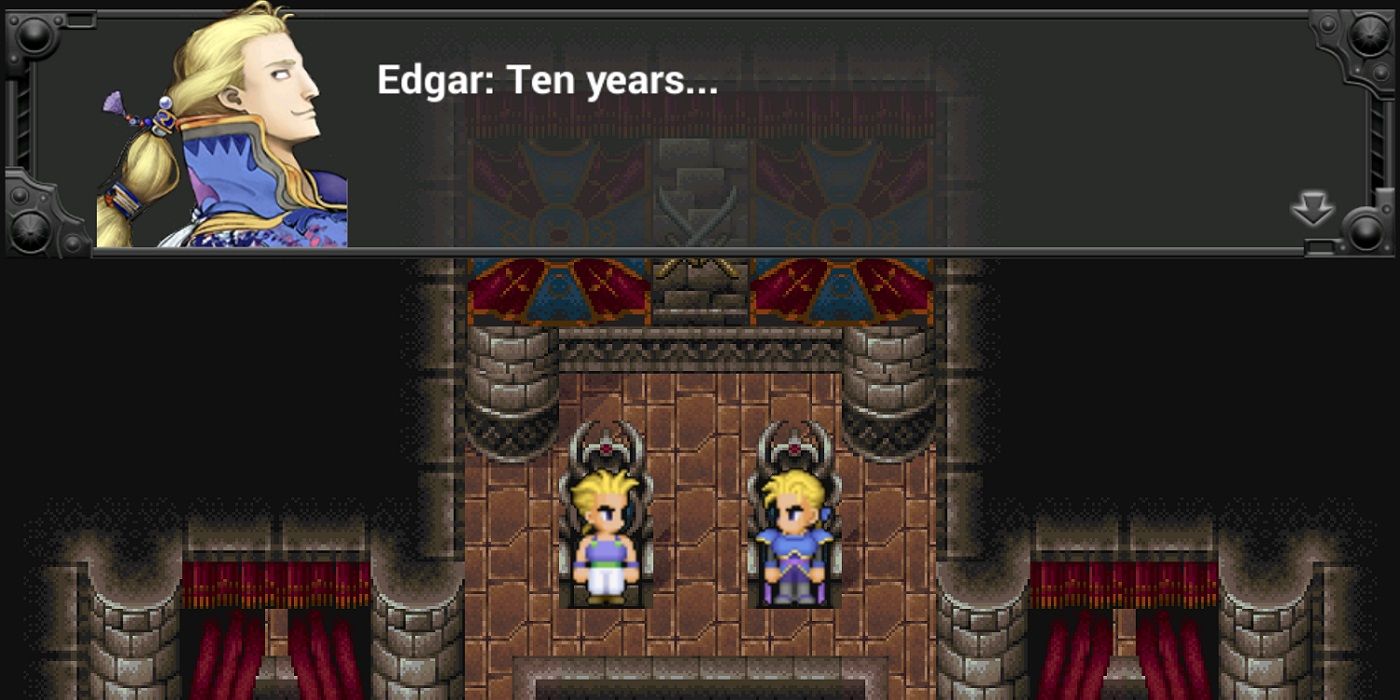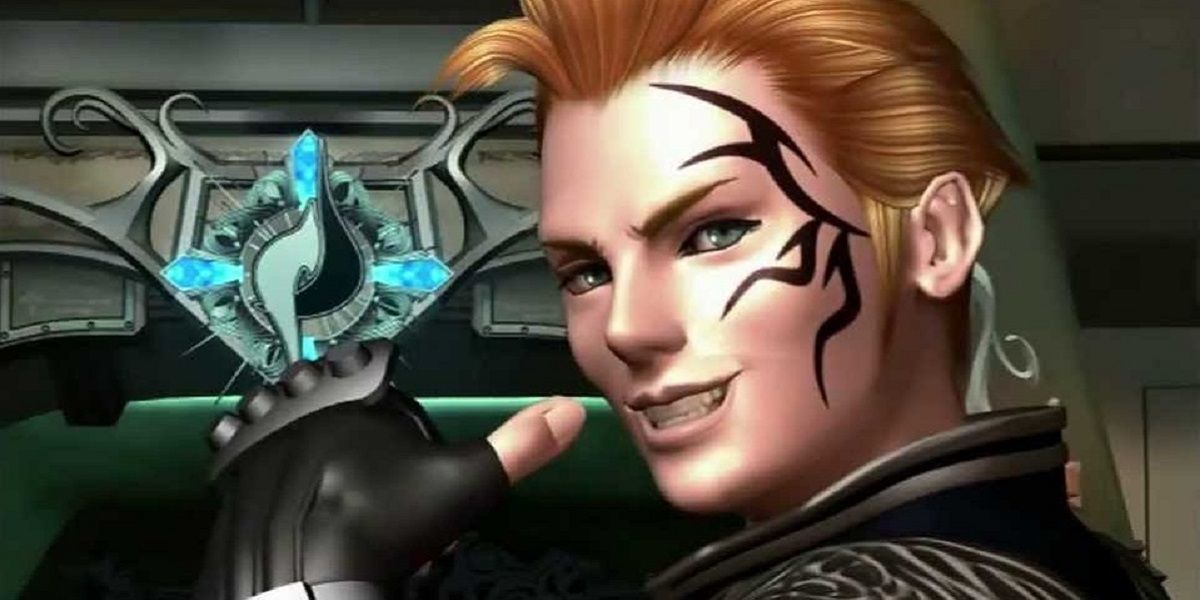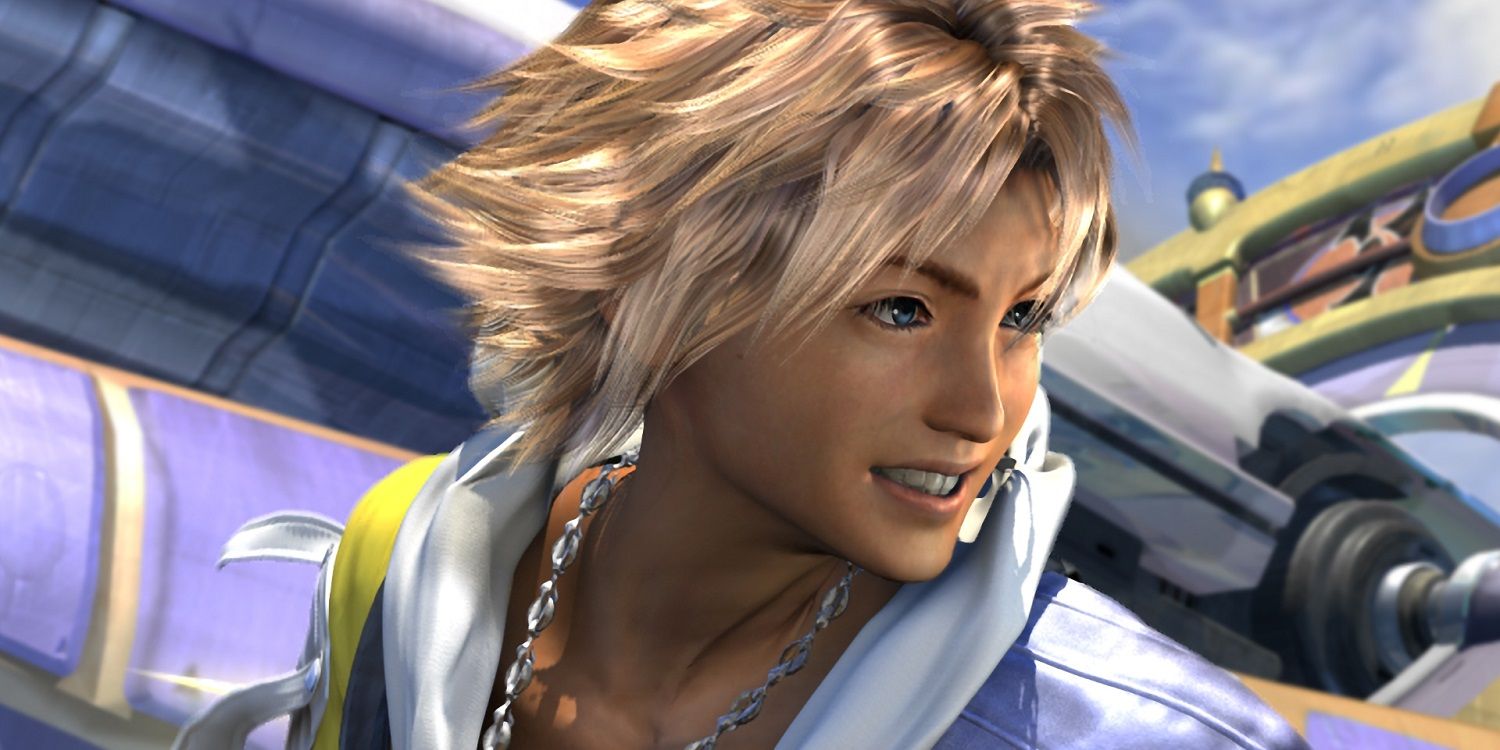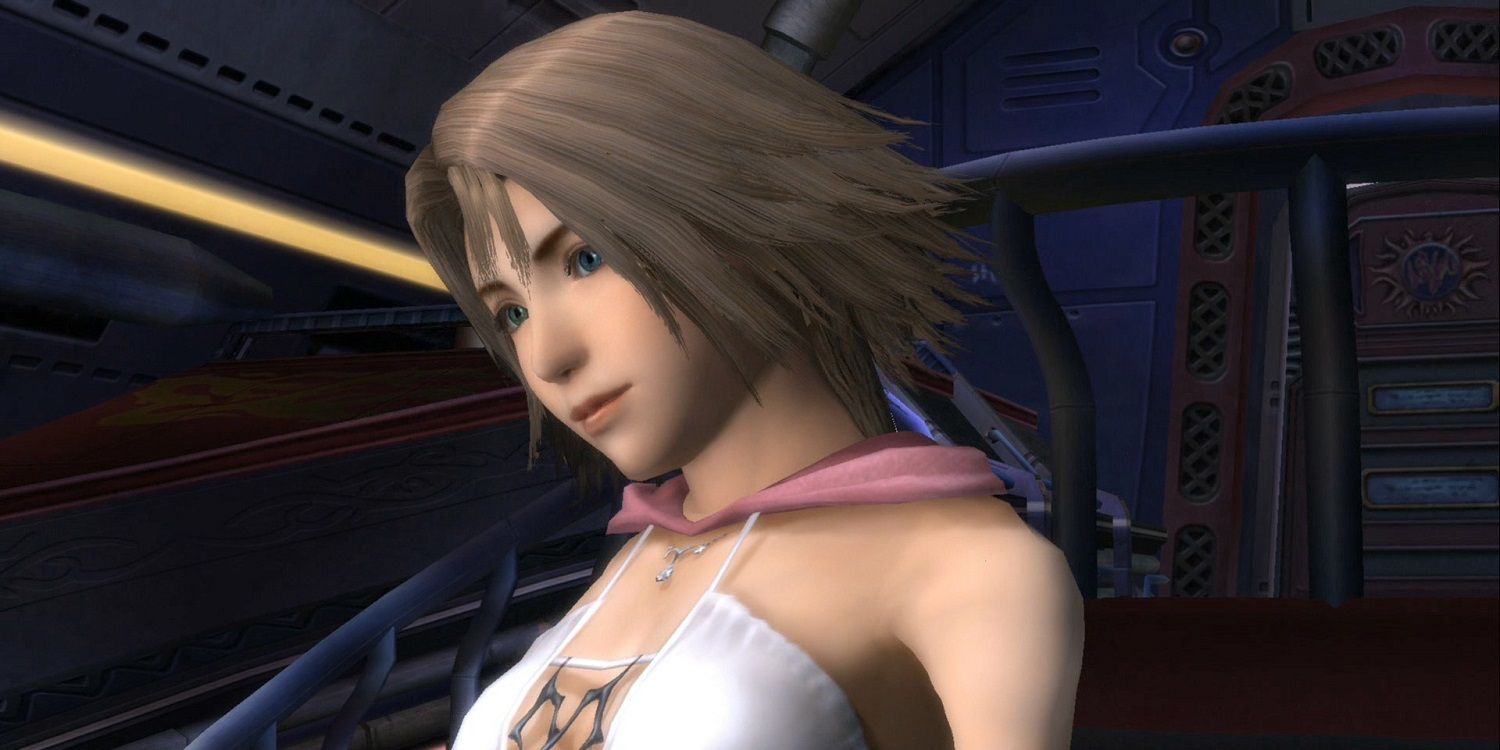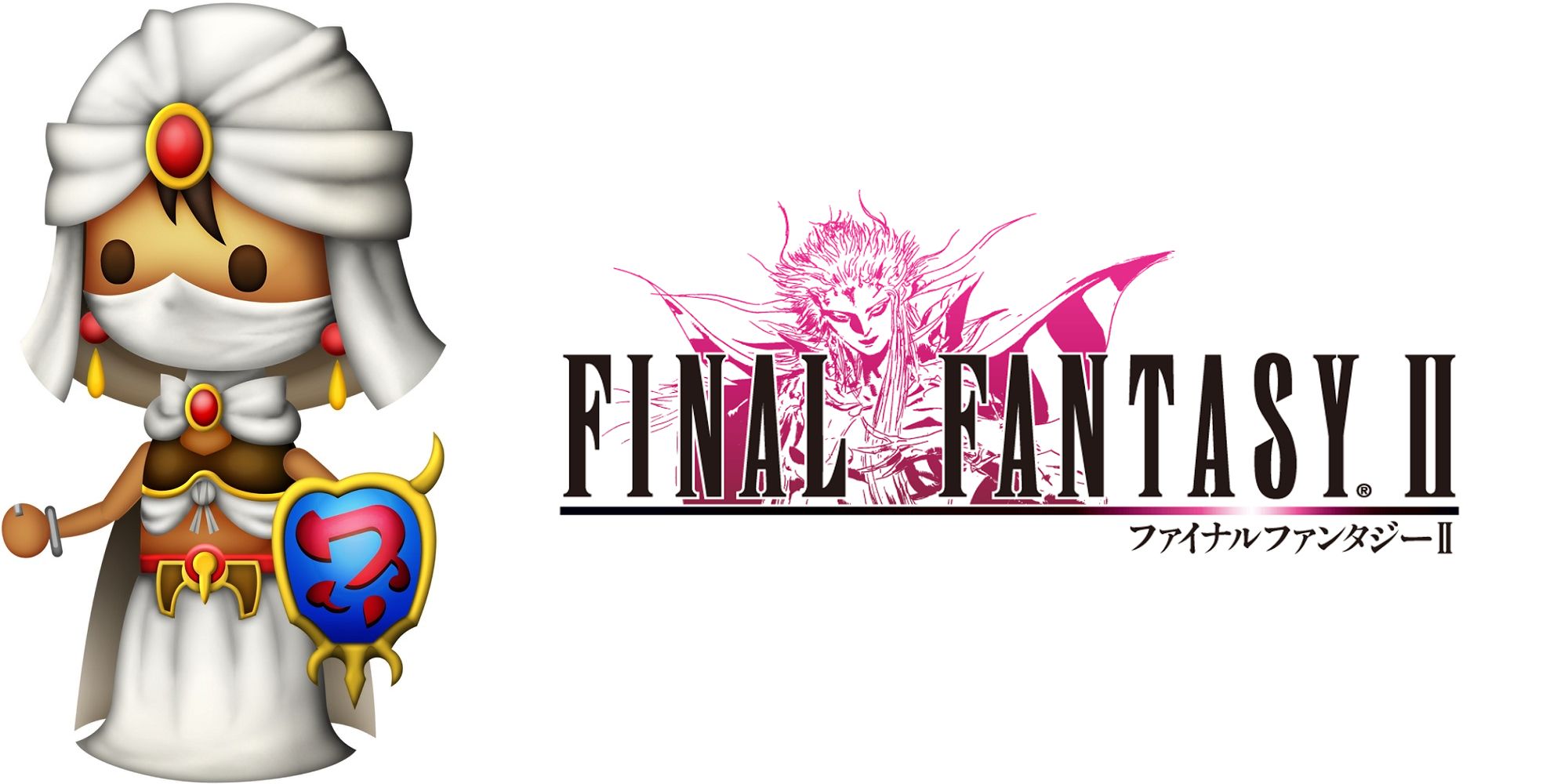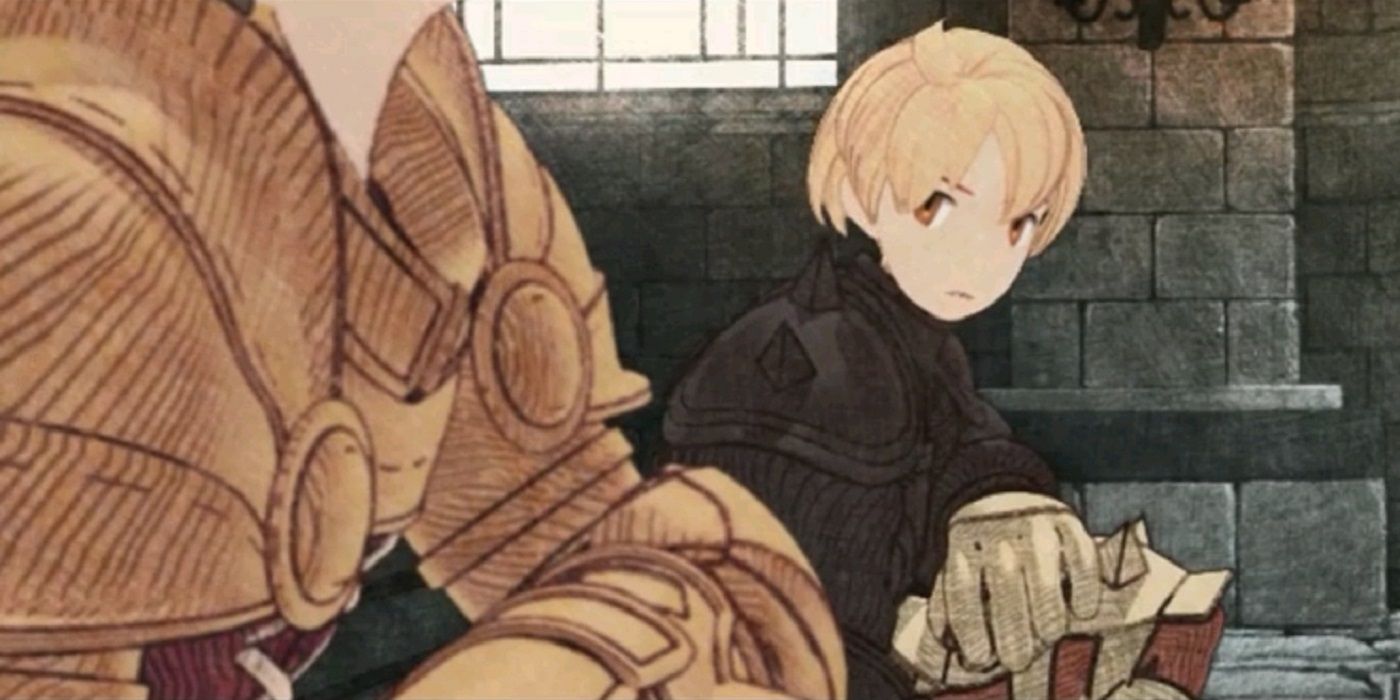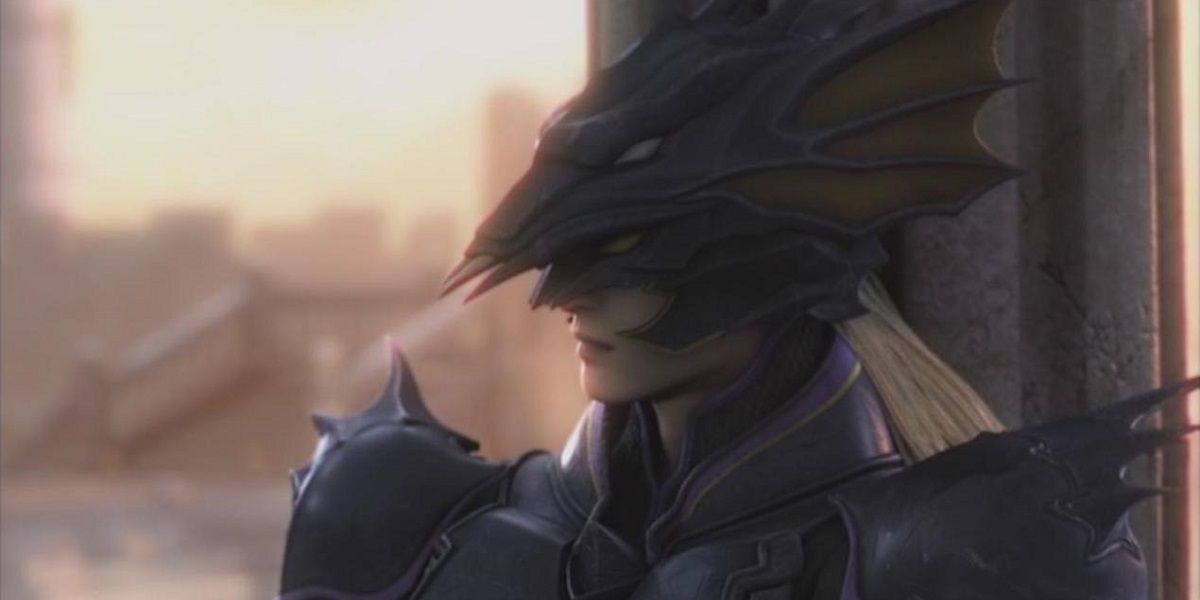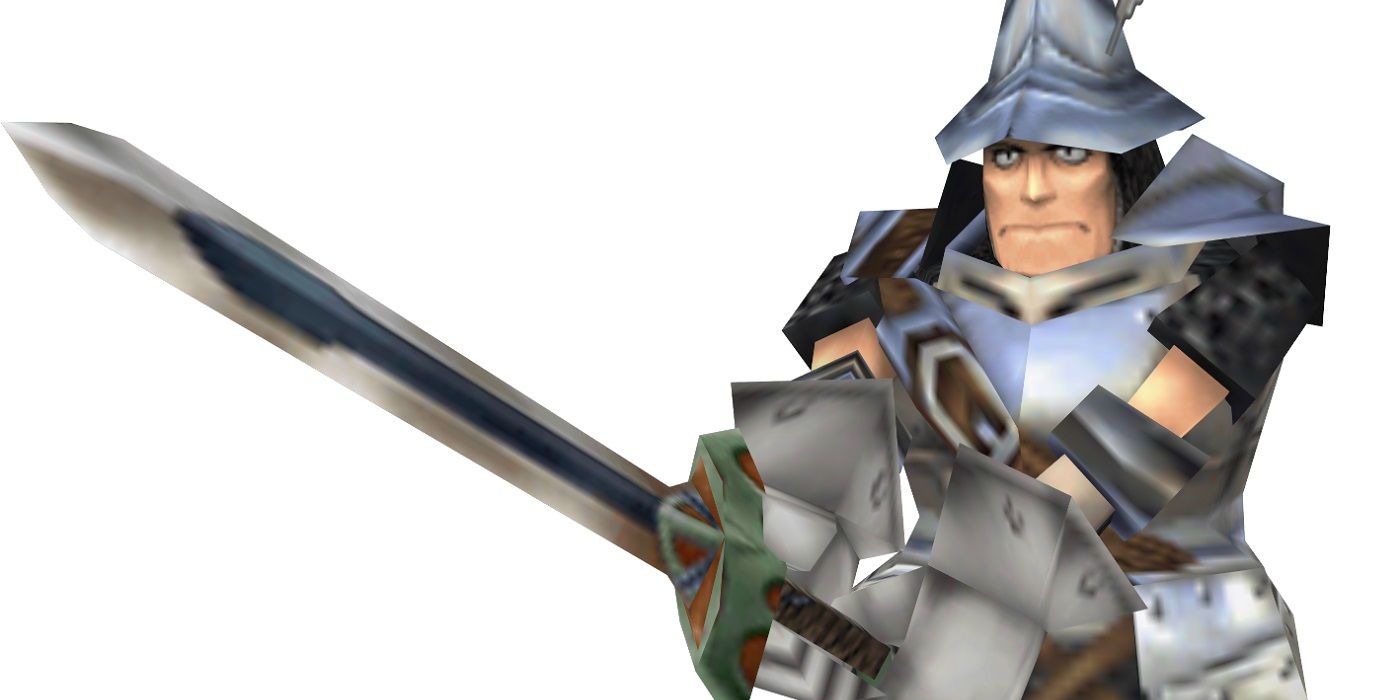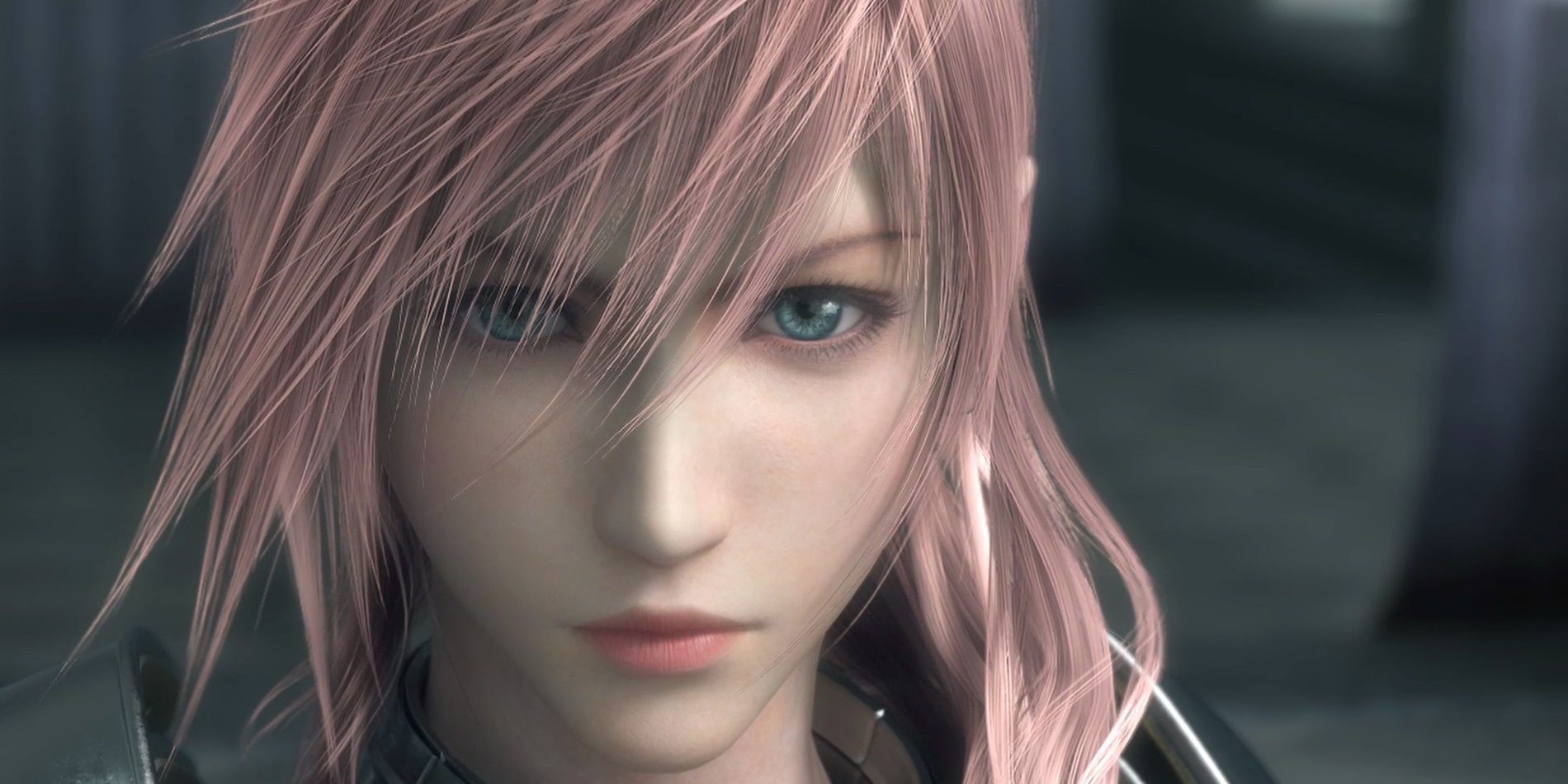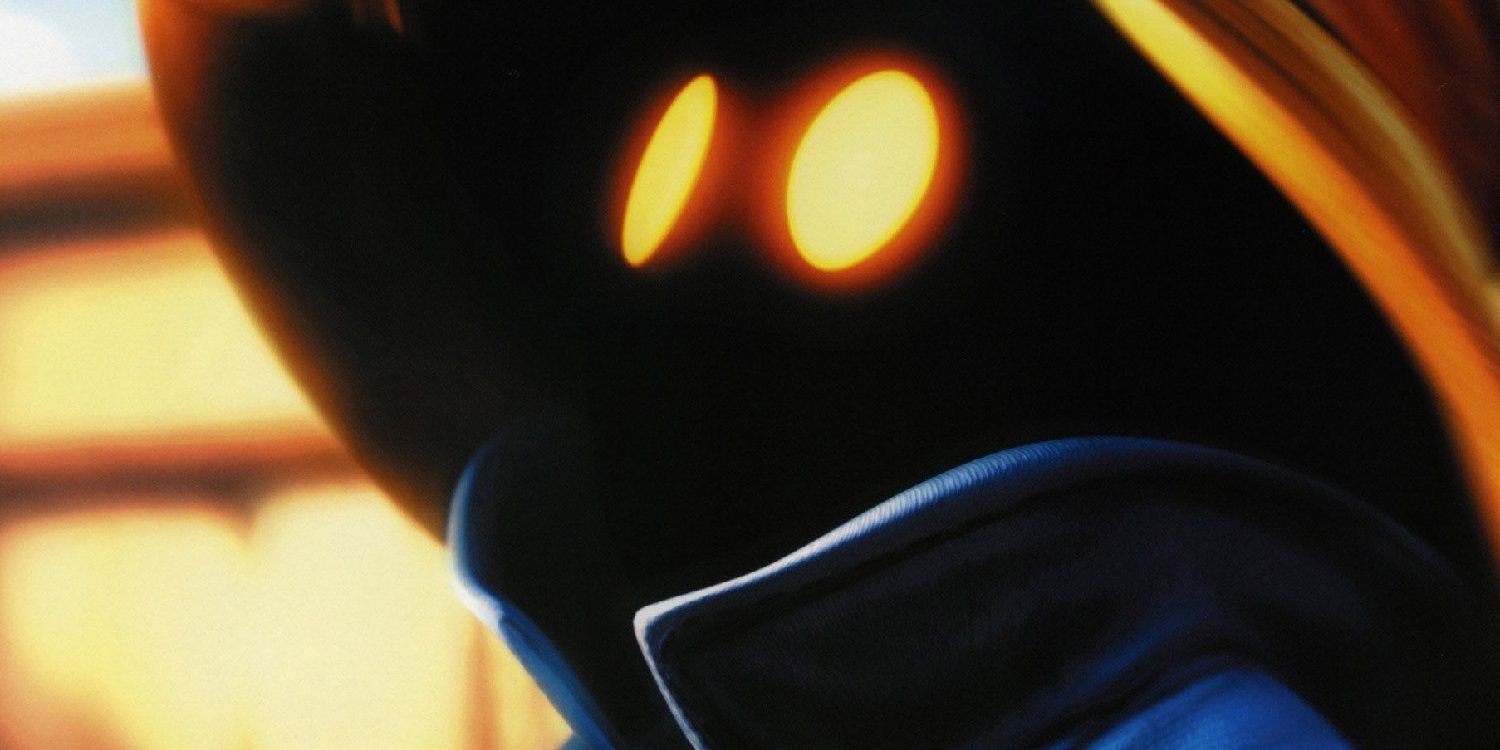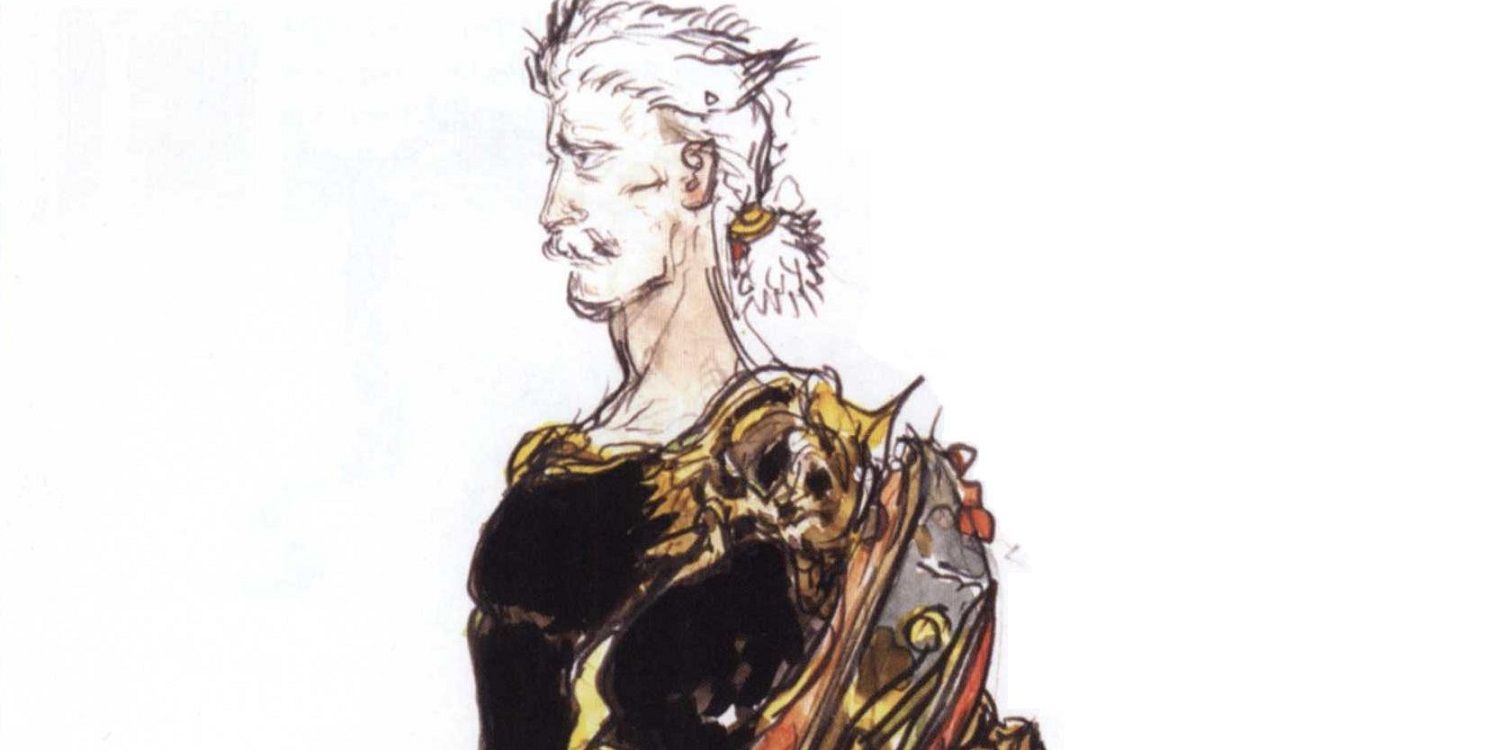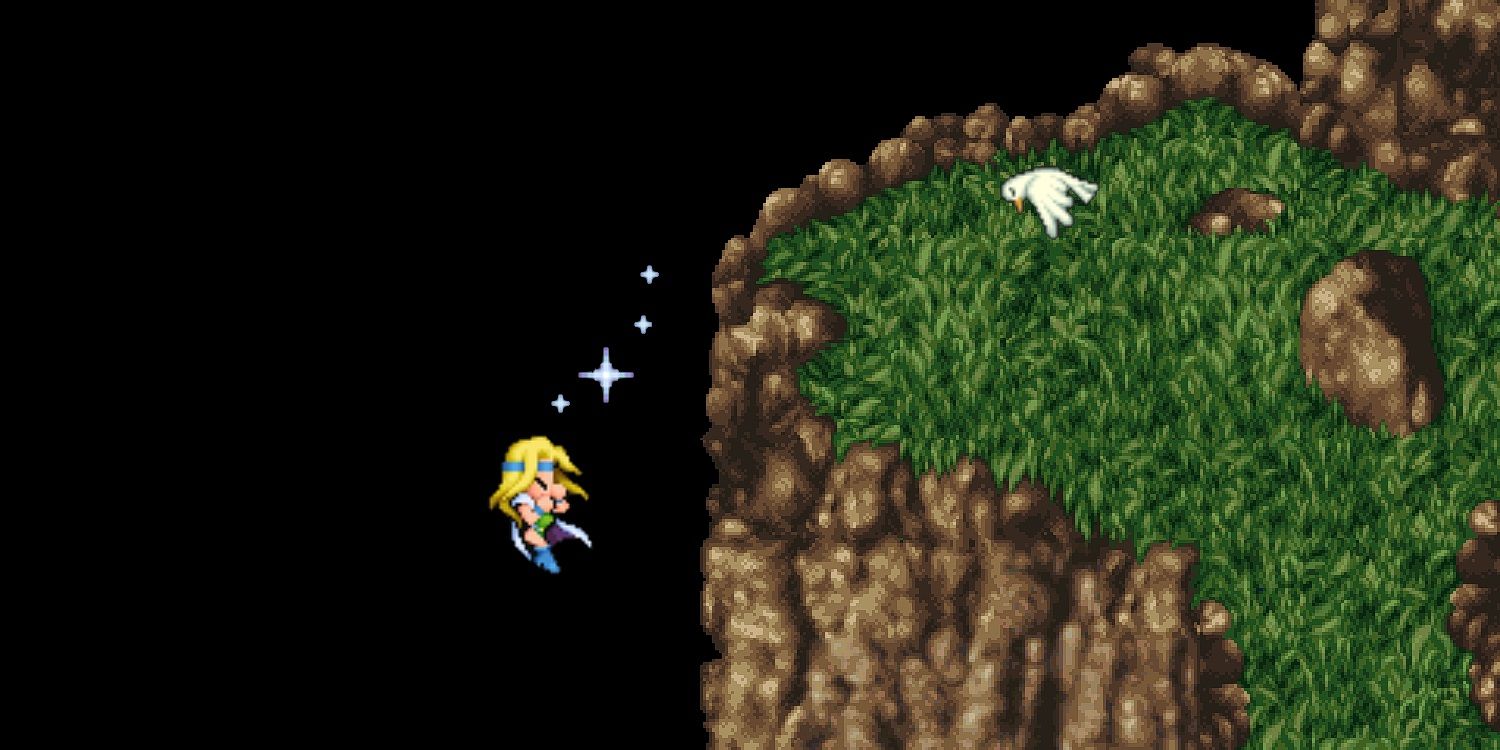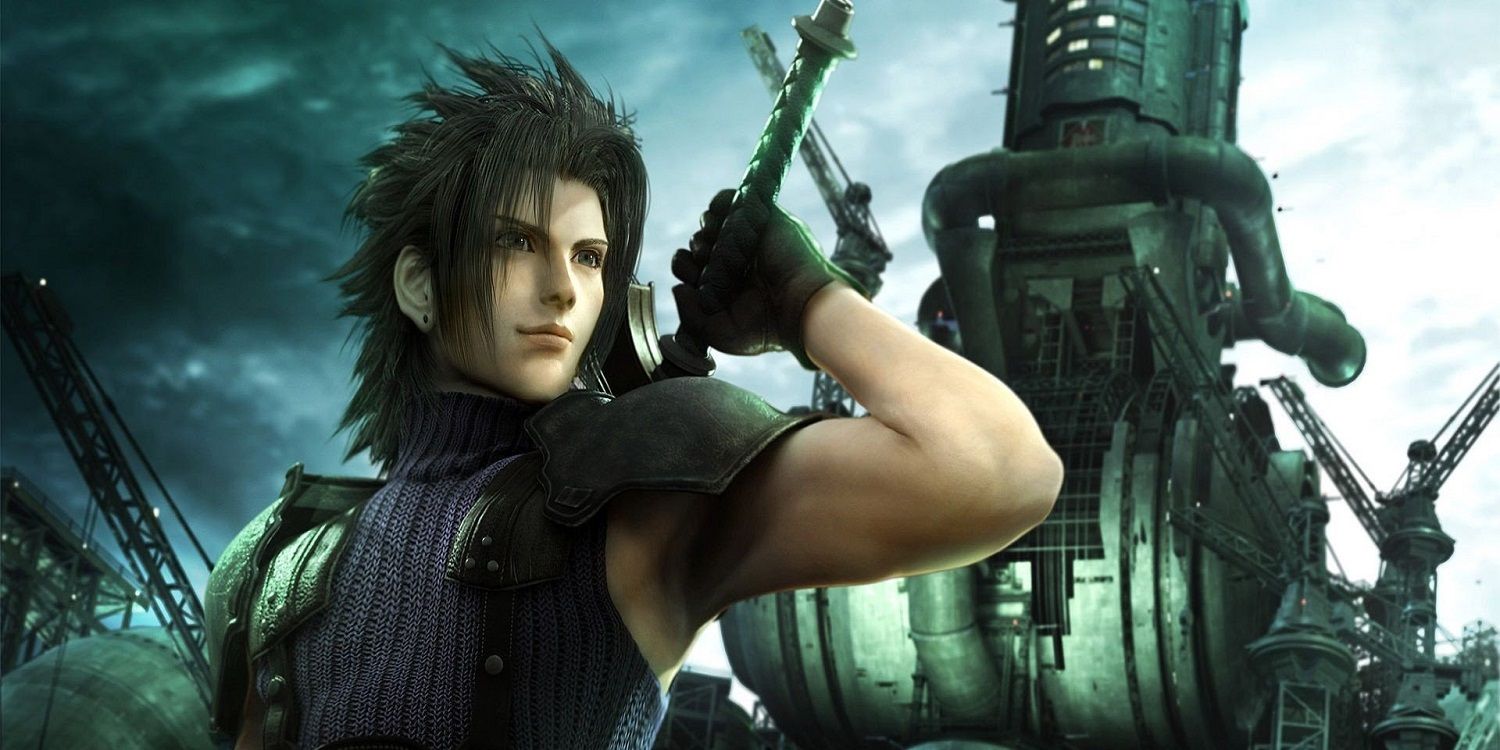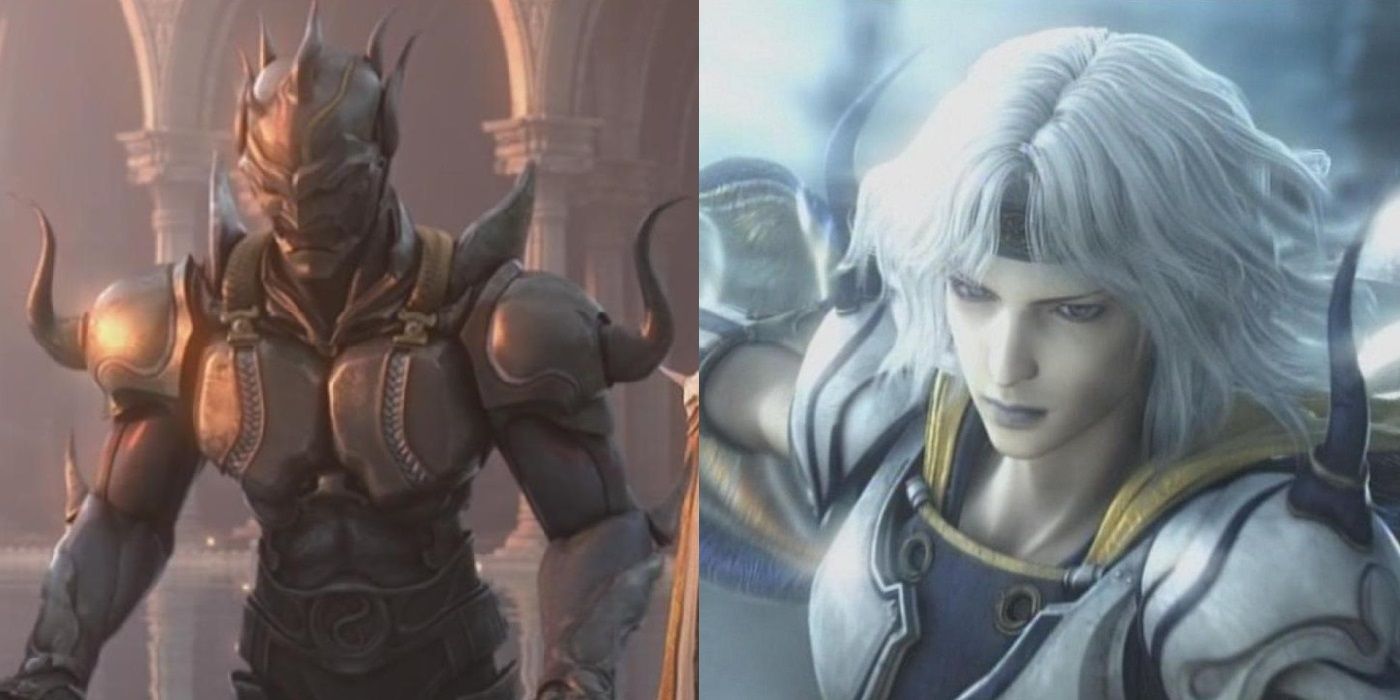Final Fantasy has been around for nearly 30 years. In that time, the series has introduced gamers to some of the greatest heroes and villains around, not just of video games, but in any medium. We're looking forward to Final Fantasy XV continuing the franchise's tradition of flawed but virtuous protagonists who fight their own inner demons, in addition to threats to global existence.
Great Final Fantasy heroes are selfless, righteous, and possess exceptional combat skills, as well as inner strength of heart. They may fight against insurmountable odds, and they may even fail in their quests and lose their lives, but the point is that they tried, that they pushed harder than anyone else could, and that they refused to back down against the imposing might of evil. These are the characters who made their games memorable, who have defined heroism for fans of the series for generations, and will continue to do so until the end of time. Here are Final Fantasy's 15 Greatest Heroes. While we wouldn't dare to spoil the brand new Final Fantasy XV, beware of unmarked SPOILERS for prior games in the series. You've been warned!
15. Cloud
What, were you expecting this spiky-headed blonde dreamboat to be a little closer to the front of the pack? He has a stylish look, a massive sword, and is at the center of Final Fantasy VII's greatest plot twist. Initially presented as an ice-cold mercenary, it is later discovered that he is suffering from a deep psychosis; he was never a SOLDIER 1st Class, it was his jolly best friend Zack. However, after Zack died protecting him, Cloud essentially assumed his identity, but with a much more self-serious tone.
Final Fantasy VII is ultimately the story of Cloud's rebirth, of forming an identity for himself by cutting away his past -- and saving the world in the process. Despite Cloud's wonderfully three-dimensional portrayal in the game, there's one element of his character (and that of Barret and Tifa) which is severely downplayed: his connection to the mass-murdering environmental terrorist group, AVALANCHE. Barret gives lip service to the idea that he regrets the collateral damage of his eco-terror bombings, but Cloud never expresses any remorse for his actions. The game itself never says just how many civilians are killed in the Sector 1 and Sector 5 explosions, but Cloud and his friends are directly responsible for each and every one of those deaths. We're definitely curious to see how the upcoming remake of Final Fantasy VII will handle these events, especially given the global rise of terrorism in the decades since the original's release.
14. Edgar
In Final Fantasy VI, King Edgar of Figaro protects his people from the wrath of the Empire by publically aligning with the evil emperor Gestahl while secretly providing support to the rebel group, The Returners. However, once the villainous General Kefka attacks Figaro Castle, Edgar publically denounces the Empire and joins the party as a playable character.
As great as his initial arc may be, Edgar is on this list because he was willing to sacrifice his freedom to protect his brother, Sabin, who is also part of FFVI's playable roster. After their father died, one of the brothers had to become King. Neither of them wanted the responsibility, and Sabin came up with the idea that they should both run away together and be free of the burden of ruling a kingdom.
Ultimately, they decided that only one of the brothers could have their freedom, while the other would be forced to stay and embrace a destiny of public service. The fate of the brothers would be decided by a simple coin toss, the loser assuming the throne of Figaro, and the winner free to pursue their own happiness in the outside world. Sabin won the coin toss, but luck had nothing to do with it; Edgar used a trick coin, ensuring that he would lose. This selfless act of brotherly love and sacrifice makes Edgar a true hero.
13. Zell
There's a whole lot of angst in Final Fantasy VIII., as both Irvine and Squall have crippling nervous breakdowns at various points in the story. Through it all, however, Zell remains focused on but two tasks: to be a hero, and to get his hands on some tasty hot dogs... That's not a euphemism, he just really loves hot dogs (flavored bread in the original Japanese version).
The story of Final Fantasy VIII tells an epic tale through the intimate lens of Squall and his friends. Every single one of them has their own conflicts and problems to overcome. Everyone, that is, except for Zell. There is no romantic subplot for Zell, and he is never hindered by an existential crisis like the other party members. All he wants to do is punch bad guys and save the world. He doesn't need to find a reason to be a hero; for Zell, heroism is its own reward.
12. Tidus
Does a man exist even if he's just a dream of some greater entity? Tidus' sword is sharp, and his resolve is unwavering, so, dream or not, Tidus changed the world of Spira in Final Fantasy X. In the opening hour of FFX, Tidus is whisked away from his home of Zanarkand to the foreign land of Spira, where he becomes bodyguard (or Guardian) to the Summoner, Yuna.
Little does he know that her quest to defeat the titanic monster, Sin, is nothing but a sham. For hundreds of years, Summoners have embarked on a pilgrimage to fight Sin, but all they do is sacrifice one of their Guardians, along with themselves, to temporarily placate the villainous entity. After a short period of time, the sacrificed Guardian becomes Sin and the cycle repeats itself.
Tidus, despite (or perhaps due to) not belonging in the world of Spira, refuses to accept this, and works with his newfound friends to come up with a way to break the cycle and defeat Sin for good.
11. Yuna
Tidus may be the face of Final Fantasy X, but Yuna deserves an even more prominent spot on the list for her inner strength. Before her friends come up with a way to defy their religious customs and take the fight to Sin without resorting to the Final Summoning, Yuna is willing to sacrifice her own life to keep Sin at bay, even if just for a short while.
After their triumphant victory, Yuna is the one who leads Spira into a bold new era after defeating Sin, once and for all. She is in deep grief because she lost Tidus in her quest to save the world, but that doesn't stop Final Fantasy X-2 from being a jolly romp through a newly liberated Spira, complete with multiple song-and-dance numbers, wacky subplots, and a plethora of fashion-forward costume designs. Yuna is a true leader; she may be in pain, but she wears a brave face for the sake of her people, and she manages to split her time between her duties to her homeland, her personal quest of self-fulfillment, and her crusade to bring back her lost love.
10. Minwu
Final Fantasy II features four guest characters who accompany Firion and his party for a short while before reaching untimely ends. Of these, the most notable is Minwu, who quickly became a fan favorite, despite relatively minimal screentime. Minwu is vastly more powerful than the player's party during the early stages of the game, with access to White Magic and far more impressive base stats. Eventually, Minwu is forced to use every last drop of his strength, giving his life to unseal the door to the room containing the Ultima Tome. In his final breath, he tells Firion not to worry about it, as it was his destiny to give his life for them.
Even after death, Minwu continues his righteous battle against the Emperor. The Game Boy Advance remake of the game introduced the Soul of Rebirth epilogue chapter, which featured the four dead characters from the main game as its protagonists. Minwu leads his comrades through the afterlife to do battle with the Emperor of Heaven; after the heroes killed the Emperor in the main game, his soul was split in two and sent to both heaven and hell. The heroes of Final Fantasy II destroy the Emperor of Hell, while Minwu and his allies take care of the Emperor of Heaven. Despite his ethereal namesake, this half of the Emperor's essence is still irredeemably evil.
9. Ramza
Some heroes never get their due in the history books. In Final Fantasy Tactics, the master manipulator Delita Heiral positioned himself to be the great hero of the War of the Lions. Historical records champion him as a strong soldier and a noble king who rose from humble beginnings to unite Ivalice under his benevolent rule.
The story of Final Fantasy Tactics is a telling of the Durai Papers, a lost chronicle of the true hero of the war, Ramza Beoulve. The corrupt Church of Glabados had the author, Orran Durai, executed, but the account of Ramza's battle against the Lucavi and Delita's secret history of scheming and backstabbing would eventually see the light of day, centuries after the fact.
Ramza saved the world, but was never recognized for his accomplishments, at least not in his lifetime. He knew that his actions would cause the immensely powerful Church to come after him, so he went into hiding after his great battles, never to be seen again. Preventing demonic armageddon was its own reward, even if no one would ever find out the truth.
8. Kain
In Final Fantasy IV, Kain is a bit of a jerk to Cecil and his pals. Because of his great weakness of pride, as well as his emotions towards Cecil's main squeeze, Rosa, he is easily manipulated by Golbez. However, after much back and forth drama, Kain manages to break through the darkness and help his allies; this is good, because, as a dragoon, Kain has access to some wickedly powerful moves, including his signature Jump attack.
At the end of Final Fantasy IV, Cecil and Rosa get married, but Kain is absent from the wedding. Instead, he establishes a permanent residence on Mount Ordeals, the same place where Cecil became a Paladin, in an effort to try and atone for his numerous failings. Whether or not Kain will succeed in his task is unclear, but at least he's trying.
In the distant sequel, Final Fantasy IV: The After Years, set nearly 20 years after the end of the original game, Kain helps out Ceodore, the son of Cecil and Rosa. By the end, Kain earns his stripes as a Holy Dragoon. After decades of repentance and dedication, Kain finally attains the redemption for which he had been searching.
7. Steiner
Zidane might be the hip young protagonist of Final Fantasy IX, who desires little more than good times and grand treasures, but Steiner is the noble knight who will protect his charge, Princess Garnet, at any cost. Due to his humorless nature and old-timey sensibilities, Steiner is the butt of many jokes from the younger members of the crew, but his dedication to Garnet is unwavering.
To put it simply, Steiner will defend the Princess no matter what; even if he has to save the whole world from annihilation, he'll do it, because it will ensure her safety. The man is good at his job. At first, Steiner's idea of protection is to essentially smother Garnet, but as the game continues and the party begins to get more comfortable with each other, Steiner begins to see Garnet as a complete person, and not just an object which must be protected at all costs. He may be a total dork, but Adelbert Steiner is still one of the most valiant and virtuous characters in all of Final Fantasy.
6. Lightning
In Final Fantasy XIII, Lightning is kind of a pill. She's stoic to a fault, hardly ever cracking a smile, and it takes her far too long to open up as a character to which the audience can relate. Her best scenes are those shared with Hope, a plucky kid with a burgeoning lust for revenge. She takes him under her wing, so to speak, and teaches him how to be an adult.
Lightning doesn't earn a prominent spot on this list for her role in FFXIII though; she earns it for her role in Lightning Returns, the third and final game in the XIII trilogy. This time, Lightning assumes the role of God's champion, the Savior, on a quest to liberate as many human souls as she can before the world is destroyed and replaced with a new one, starting the cycle of the deity's dominion over man anew. However, she ultimately sees through God's deception and opts to destroy him, ensuring that the new world won't be held back by Gods and religion. She frees humanity from religion, and, at long last, earns her rest.
5. Vivi
In the world of Final Fantasy IX, Black Mages aren't born; they're created with Mist and essentially raised to be living weapons. Vivi is at the heart of the game's theme of existentialism; by all accounts, he has no right to exist, and his only use is as a weapon of mass destruction. However, due to being lost in the shuffle (literally falling out of a cargo airship), he was diverted from this dour destiny.
Eventually, Vivi meets up with Zidane and joins him in his quest. Despite lacking in self-confidence, the young boy gradually comes to realize that he is just as special as anybody else. Even though he wasn't born like other humans and his life expectancy is tragically short, he can still help his friends and justify his existence without being a living weapon. That being said, his destructive skills with Black Magic make him incredibly useful to the player.
In the game's ending, Vivi is the only character who doesn't appear, since the lifespan of a Black Mage is but a single year. He narrates the game's ending from beyond the grave, saying that he lived a good life because he had friends who helped him to defy his fate and live the kind of life he could choose for himself.
4. Galuf
Final Fantasy V is often overlooked by modern fans, and that's just a shame. For our money, V is one of the strongest titles in the series, with a winning mix of world-ending stakes, light-footed comedy, deep gameplay, and genuinely emotional moments. One character who embodies the core of FFV is Galuf. When protagonist Bartz first encounters the old man, he is amnesic but easy-going; a cantankerous old man who indulges in his crankiness because he knows that he's old enough to get away with it.
Eventually, the truth comes out that Galuf is actually a king, and, more importantly, one of the four legendary Warriors of Dawn, who saved the world in much the same way that Bartz and his friends are well on their way to doing themselves. Ultimately, Galuf falls in battle with the game's big villain, Exdeath. After fighting him to a standstill and shocking Exdeath with his Herculean stamina, Exdeath is forced to retreat. However, the strain of the battle was too much for Galuf, and he collapses. After he dies, Galuf's ghost appears to his granddaughter, Krile, and bestows upon her all of Galuf's powers and abilities (and EXP). Galuf reappears in the game's final battle, continuing to fight against Exdeath and lend his assistance to Bartz and company. Ultimately, not even death can keep Galuf from being a supreme badass.
3. Celes
Final Fantasy VI contains a roster of fourteen playable characters, one of the largest in the whole series, and is a true ensemble piece. Despite Terra appearing prominently in much of the artwork (and representing VI in the Dissidia spin-off series), every character has a pivotal role in the story. Celes is a former imperial general who gets imprisoned after objecting to their unethical wartime practices, and eventually finds herself allying with the Returners, the heroes of the game.
After the shocking twist of Kefka destroying much of the world, the game jumps ahead one year to when Celes awakens from a coma. In her despair at the state of the world and the death of her paternal figure, Cid, she loses all hope. (Okay, technically, Cid can actually be saved, but it's really hard and there is very little in the way of reward, outside of personal satisfaction and missing out on one of the boldest and edgiest scenes ever made for a Super Nintendo game.) Anyway, after losing all hope, Celes jumps off the side of a mountain in an attempt to end her own life, but miraculously survives in the ocean below. By sheer coincidence, she finds Locke's headband, and deduces that he and the rest of their allies may be alive.
Just because the world is literally destroyed, doesn't mean the fight against evil is over. Celes is a true hero because she reaches the end of her rope and actually gives in to despair, though she ultimately turns her life around and leads her allies into the grand final battle. It's never too late to keep on fighting for a better world, and Celes embodies the heroism of someone who faces a hopeless situation and still tries to help.
2. Zack
Zack plays an integral role in Final Fantasy VII, though his screen time is relegated entirely to flashbacks and off-screen mentions. He was Cloud's friend and mentor, a SOLDIER 1st Class, while Cloud himself was just a lowly grunt. However, during the Nibelheim incident, both of their destinies were changed forever, by Sephiroth and Hojo. In the end, Zack is shot to death by a Shinra hit squad while Cloud escapes, the trauma rewriting his memories and personality to a colder, more aloof version of Zack himself.
The spin-off prequel, Final Fantasy VII: Crisis Core, fleshes out the character of Zack much further. He is warm and affable, and he wears his heroism on his sleeve. Unfortunately, Genesis and his ramblings about the Loveless play threaten to derail the whole game, but when the focus is on Zack and his jolly personality, Crisis Core shines.
Crisis Core and the original title vary in their depiction of Zack's death; in the original, only a few troopers show up and catch Zack off-guard, and he is mowed down quickly, Sonny Corleone-style. In Crisis Core, Zack sees the attack coming, and makes sure to shield Cloud from harm while he engages a massive Shinra platoon singlehandedly, nearly wiping them all out before succumbing to his numerous wounds.
1. Cecil
Final Fantasy IV's main hero earns the top spot on this list because his quest is tied into gameplay in a way which was simply unheard of in 1991, and is still a rare occurrence to this day. Cecil Harvey begins the game as a Dark Knight, a class which obviously draws its power from the darkness within the character's heart.
As the game wears on, Cecil becomes disillusioned with the increasingly militant policies of his kingdom, especially after he and his ally, Kain, are duped into destroying the peaceful village of Mysidia. Finally, several hours into the game, Cecil fully renounces the darkness within him and changes classes, becoming a Paladin, a knight whose power comes from holy light energy.
As a Paladin, Cecil starts out at level 1, while the rest of the party is at least at level 15 or so. However, Paladin Cecil possesses a willing combination of strong attack power and useful healing magic, while Dark Knight Cecil's strongest attacks used his own hit points to fuel their destructive power. After some hard work grinding levels, the Paladin proves to be much more useful than the Dark Knight class. The darkness may be alluring and easy, but the path of virtue, while initially more difficult, is infinitely more rewarding in the long term.
---
What do you think? Were we too hard on Cloud? Do you think Cecil is overrated? Who's your favorite Final Fantasy hero? Sound off in the comments!

